The Tea Rose – Jennifer Donnelly
The plot must consist of pretty much every cliché in the book except the classic evil twin. At the last two «twists in the tale» I actually laughed out loud – that’s how madly «buy one plot-device, get three free» infested it all was. However, despite this, Donnelly had me caught well and good and I had serious problems in putting the book away and not sneak a few pages in under the desk at work. Not a Nobel candidate, then, but very well worth reading.
Shaman’s Crossing, Forest Mage and Renegade’s Magic – Robin Hobb
Ok, so this deals partly with those lost months… I had to labour a bit through the first two volumes (I never thought I’d say this about a Robin Hobb book), and got completely stuck at the beginning of the third. I don’t know if I could put my finger on it, but this trilogy just didn’t do it for me. I kept reading because I was just interested enough to want to know what would happen in the end, but not interested enough to want to spend 2000-odd pages getting there. It doesn’t help, of course, that the volumes are really too big to read comfortably (I might need to consider weightlifting if I’m to keep reading this size of book in hardback), and certainly too big to be tempting for bringing on the bus etc. I suppose I felt that Hobb might have been better off writing this as one book rather than a trilogy. It seemed somewhat unnaturally extended to me. It may be that she was caught in the probable contract with her publisher to produce trilogies, or it may be that she really felt this story needed three times 700 pages. I didn’t. I will still look foreward to Hobb’s next, but not with such bated breath as before.
Special Topics in Calamity Physics – Marisha Pessl
Very gripping and full of intriguing twists. Found it hard to put it down towards the end, and wanted it to go on once it finished. Still, not the sort of book one rereads – the twist is not quite surprising enough to make me want to go back and reread to see what I’ve missed and knowing how it ends will ruin the rest of the story too much at a second perusal. Bookcrossing candidate if ever I saw one.
The Book Thief – Markus Zusak
A very engaging book, though I became mightily annoyed with the narrator. Partly the fact that «he» is death (which just didn’t work for me, don’t ask me why), partly the endless foreshadowing (or, rather, foretelling – «more of that later» hints – a bit of vague foreshadowing I can deal with) and partly the bulletin-style interruptions which, yeah, ok, I could make a convincing interpretation of if I had to write an essay on this book for an exam, but, hey, I finished school and I prefer to do my reading at my own pace, and, frankly, until I learned to «ignore» them I wanted to hurl the book across the room every time. Still, engaging. (Sent as a rabck.)
After the Quake – Haruki Murakami
A bookring on bookcrossing and one of those 1001 books. This reminded me why I don’t like short stories (just when I start getting interested, they end), but I like Mr. Murakami’s way with words, so I will try him in novel-form when I get the chance.
Frost on My Moustache – Tim Moore
Funny.
The Careful Use of Compliments – Alexander McCall Smith
Isn’t it a lovely title? And isn’t it a lovely book?
Boksamlere forteller
An interesting anthology I found at an «antiques» fair. And by interesting I mean that the existence of such a collection intrigued me, especially printed in 1945. The book itself was unfortunately mostly dull. I normally love reading people’s descriptions of their collections, so I’m not sure why it should be so, but there it is.
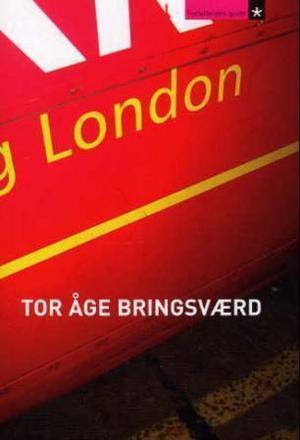 Nå har jeg i alle fall lest den ene London-boka. Siste halvpart av Rutherfurd får bli med på turen (ja, jeg har begått bokmord, jeg har splittet den tjukke paperback’en i to med papirkniv). Men Bringsværd hadde jeg jo lånt på biblioteket, så han får bli igjen hjemme (hel og fin).
Nå har jeg i alle fall lest den ene London-boka. Siste halvpart av Rutherfurd får bli med på turen (ja, jeg har begått bokmord, jeg har splittet den tjukke paperback’en i to med papirkniv). Men Bringsværd hadde jeg jo lånt på biblioteket, så han får bli igjen hjemme (hel og fin).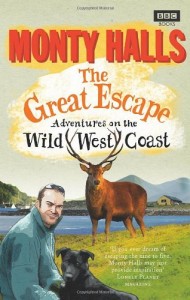
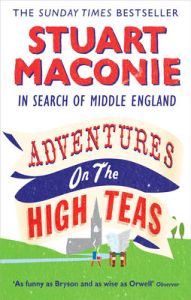
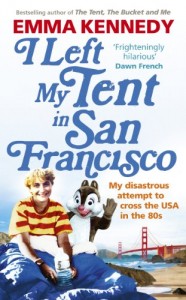
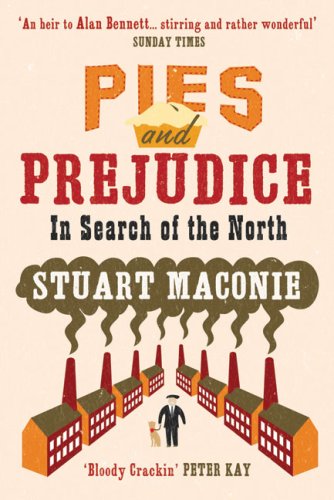 I found Pies and Prejudice – In Search of the North by Stuart Maconie in the newly extended English language section of one of the lokal bookshops (Norli på Nordre, om noen av mine norske lesere lurer). To my surprise, and glee, they now have a proper section for non-fiction, covering two whole book cases. I celebrated by buying this book, and I am very glad I did. The Times – according to the blurb on the cover – called Maconie «The new Bill Bryson» in their review, and I think they might be on to something.
I found Pies and Prejudice – In Search of the North by Stuart Maconie in the newly extended English language section of one of the lokal bookshops (Norli på Nordre, om noen av mine norske lesere lurer). To my surprise, and glee, they now have a proper section for non-fiction, covering two whole book cases. I celebrated by buying this book, and I am very glad I did. The Times – according to the blurb on the cover – called Maconie «The new Bill Bryson» in their review, and I think they might be on to something.